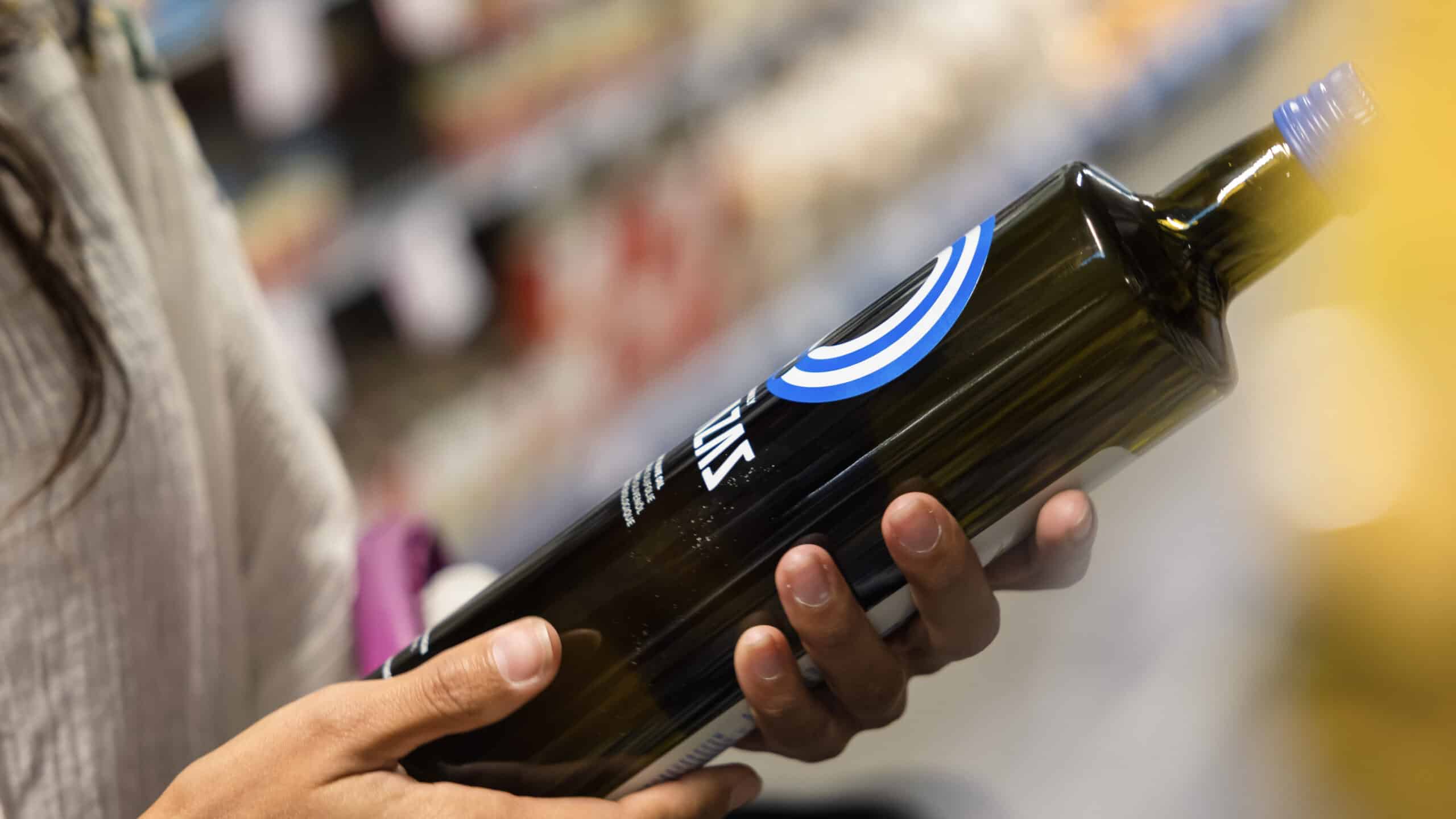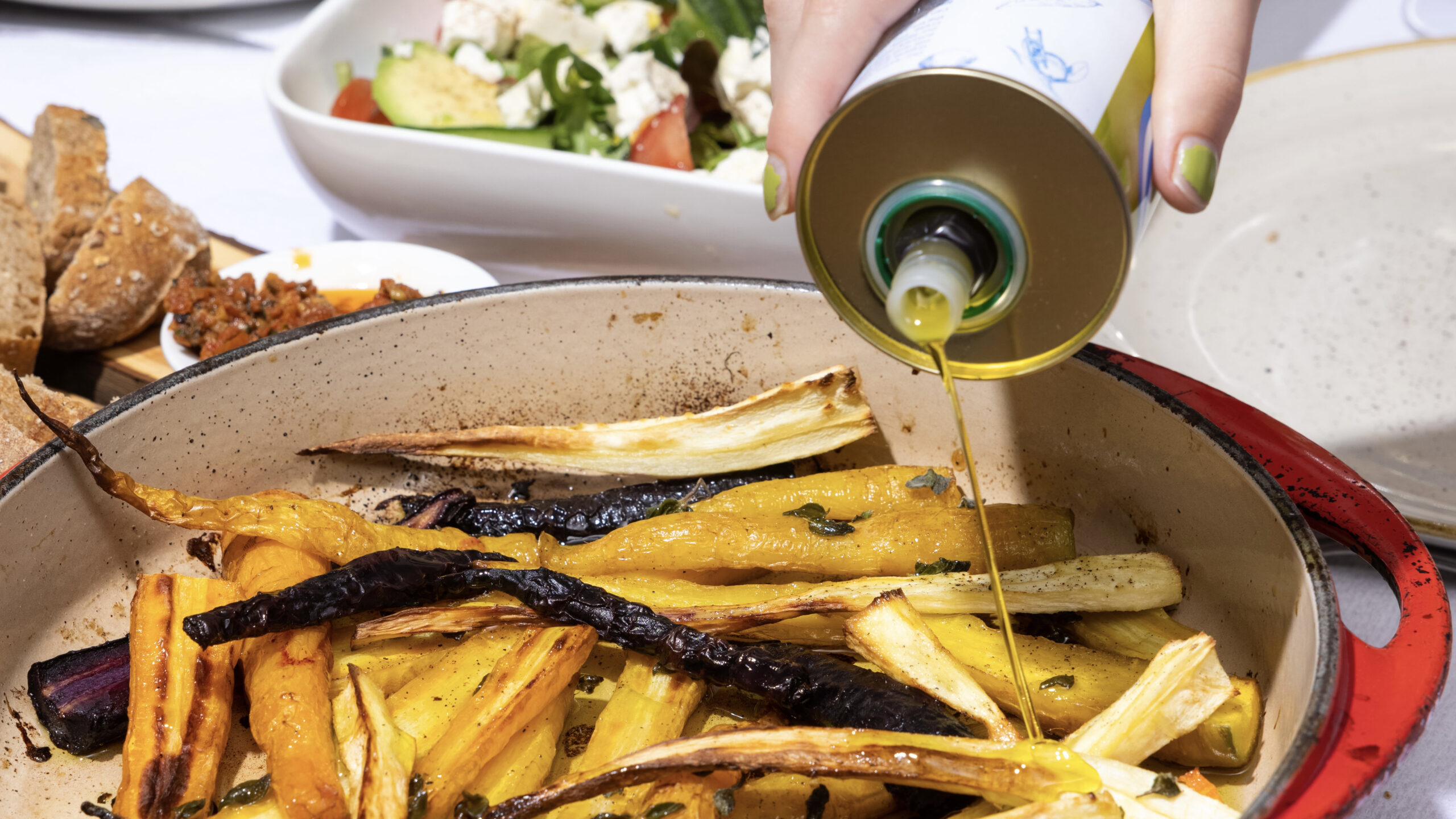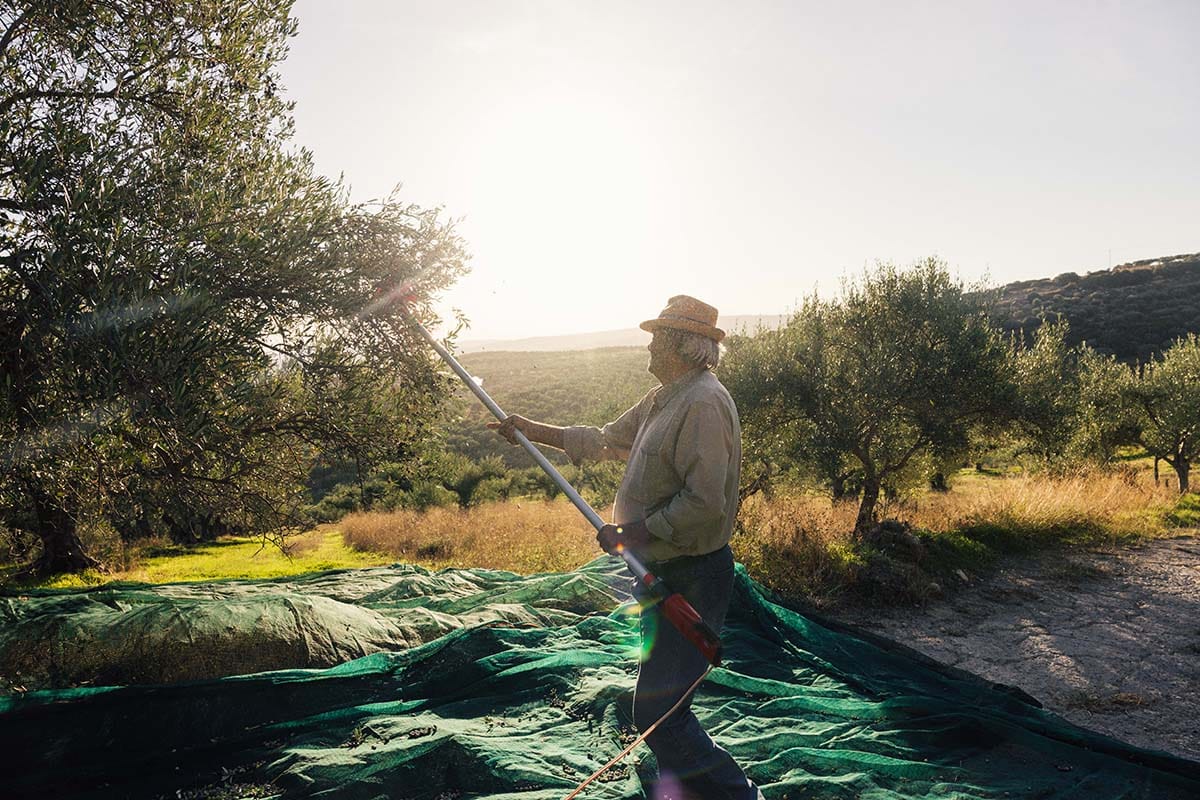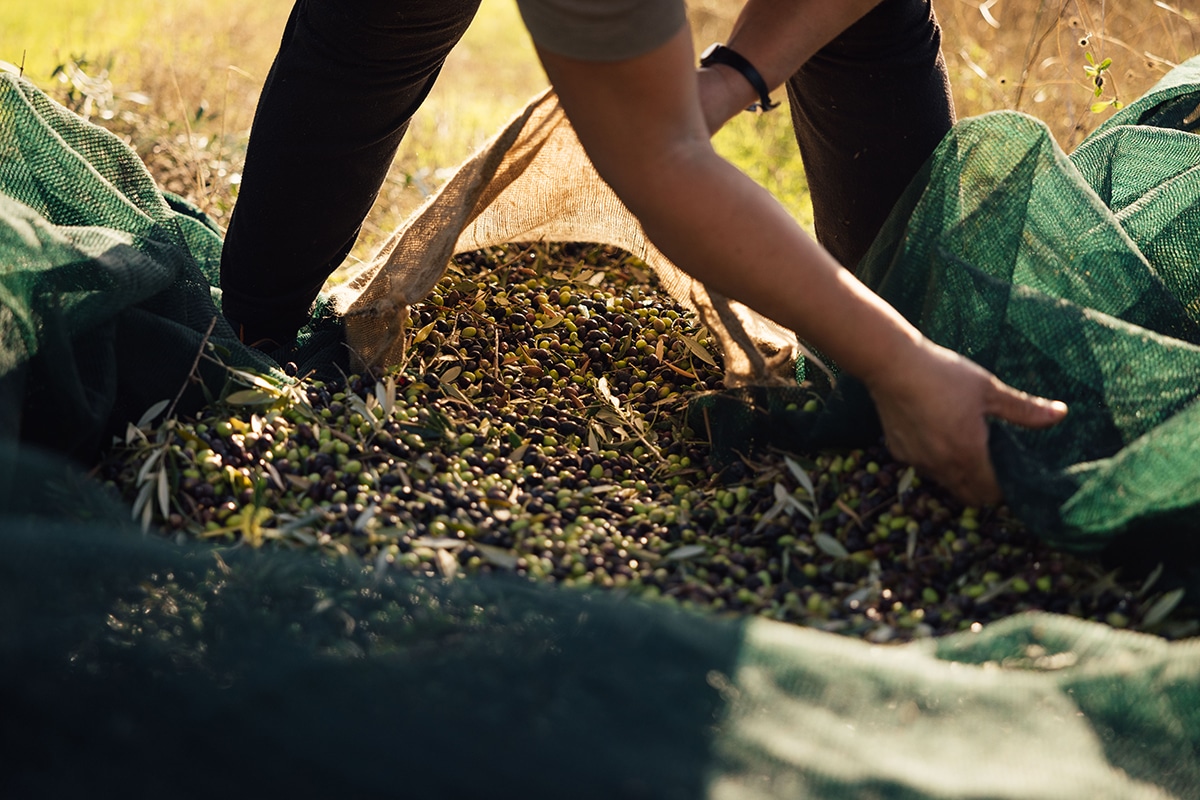Olive oil comes in all shapes and sizes. Take extra virgin olive oil—the highest quality variety. But does it really matter whether it’s organic or not? In short, is organic olive oil better? Let’s figure it out!
What is organic olive oil?
Yes, that’s something important to understand first. In short, certain rules must be followed to carry an official European organic certification (as we do):
- Products must consist of at least 95% certified organic ingredients.
- It must be clear exactly where the ingredients come from.
- No chemical pesticides may be used.
- No artificial fertilizers may be used.
- Products with Demeter or EKO labels meet the same requirements as those with the European organic label.
For organic olive oil production, this means all olives must be 100% organic. You also need to know exactly where and how they are grown. In our case, that’s on specific groves in Crete where everything is cultivated naturally—without chemicals or artificial fertilizers.
Okay, but is organic olive oil actually better?

1. Is it healthier?
Organic olive oil is healthier than non-organic oil of the same quality because it contains no residue from potentially harmful chemicals—such as pesticides used to repel insects.
2. And the environment?
Again, we look mainly at the use of pesticides and artificial fertilizers. When it comes to environmental impact, organic olive oil has a smaller footprint, as these substances are not used. They can otherwise pollute or exhaust the soil, water, and air. Organic farming practices are more sustainable and environmentally respectful.
The argument for using pesticides and fertilizers is that it allows for cheaper production of high-quality olive oil. That’s great for your wallet—but let’s move on to the next aspect of whether organic olive oil is better.
3. More nutrients?
In essence, all olive oils contain the same nutrients. Organic farming doesn’t directly affect this in the short term. However, over time, conventional farming can deplete the soil, which may eventually reduce nutrient content.

4. What about taste?
Many people claim that organic olive oil tastes better than non-organic oil. That’s likely because the olives are grown in a healthy, natural environment and don’t contain chemical additives that may affect flavor. Interestingly, some animals prefer organic food in taste experiments. And flavor experts often say they can tell the difference. But whether the average person can notice it? That remains a question.
5. More care
Choosing the “harder” path—growing without synthetic fertilizers and chemicals—means more care goes into the product, the environment, and the community. We firmly believe you can taste that extra love in the final result. Seeing that passion in the producers adds so much to the experience. That’s something we value deeply.

6. Quality
Is organic olive oil better? Producing high-quality organic extra virgin olive oil brings more challenges than producing non-organic. It’s simply easier and cheaper to grow olives using synthetic fertilizers and pesticides. You also need certification, which adds regulations and compliance. All in all, producing high-quality organic olive oil requires more time and energy.
7. What does it cost?
Organic olive oil may be more expensive—both for the producer and the consumer. Natural farming practices and the absence of synthetic aids raise production costs. Certification and annual inspections also take time and money. Since not all olive groves are organic, supply is more limited, which drives up the price for consumers.

So, is organic olive oil better?
So, is organic olive oil better? Yes and no. Organic olive oil has clear advantages in terms of health, environment, and taste. But it’s just one of many factors that determine whether an olive oil is truly of the highest quality. So, if two oils score equally high on all fronts, then yes—organic is the better choice.
Want to learn more about the factors that define the best olive oil?
In short: if it fits your budget, organic olive oil is the best choice. But if it’s unavailable or too expensive, choosing a high-quality non-organic olive oil is still a healthy and nutritious option. Learn more about the different types of olive oil and when olive oil is healthy.
It’s also important to remember that the quality of olive oil doesn’t depend solely on whether it’s organic. Origin, acidity, and production method all matter. Curious about what makes an olive oil the very best? You can buy our 5-liter olive oil tin here—or browse our other olive oil tins.
















